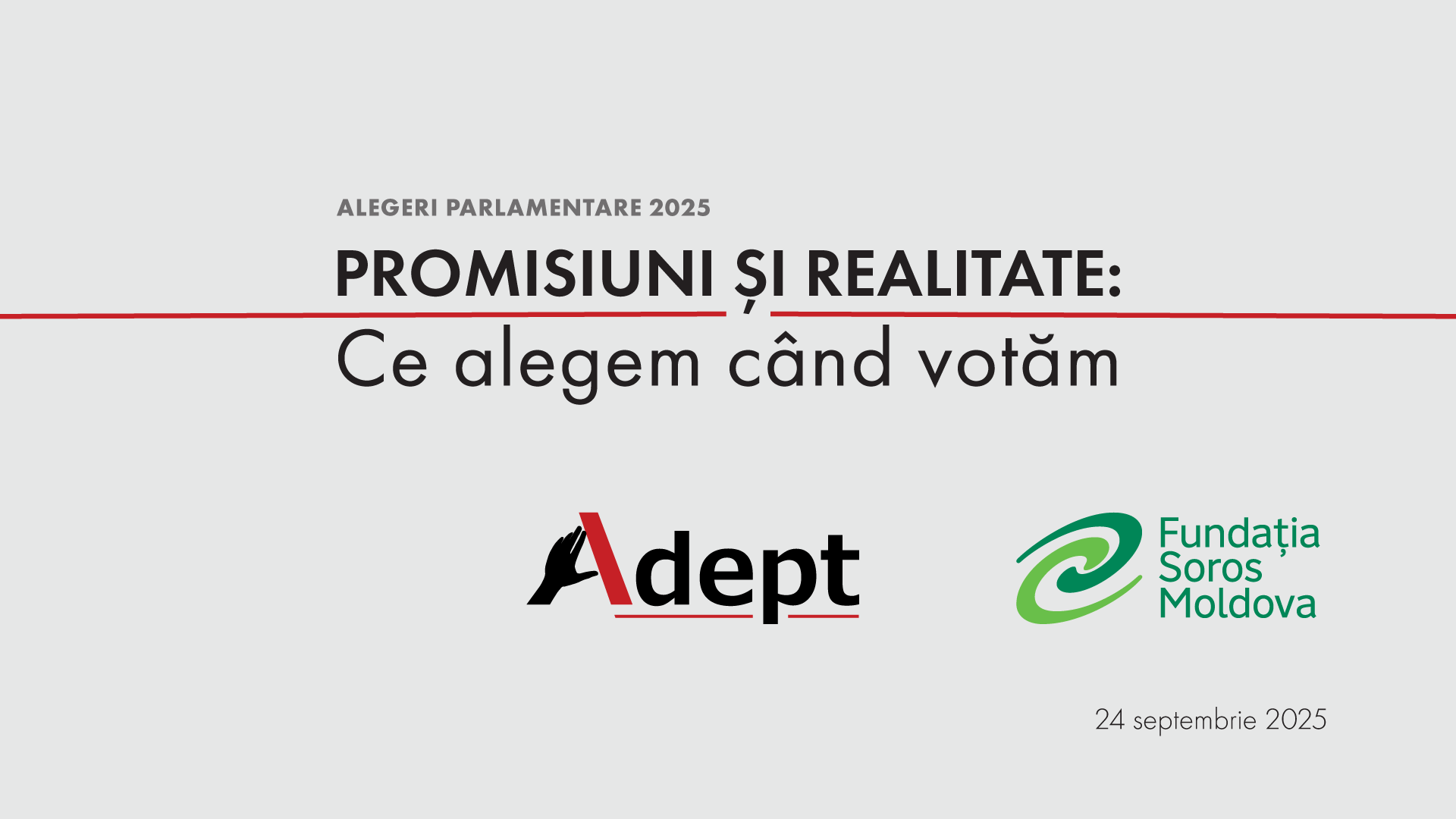ADEPT Analytical Note: Political Party Platforms in the 2025 Parliamentary Elections

The Association for Participatory Democracy (ADEPT) has released its analytical note “Electoral Platforms 2025”, developed under the project “Informed Choice 2025”, with the support of independent experts and financial assistance from the Soros Foundation Moldova. The findings were presented and debated during a public session of the ADEPT Press Club, attended by journalists and policy experts.
The analysis covers four political formations: the Party of Action and Solidarity (PAS), the Patriotic Bloc, the “Alternative” Bloc, and Our Party (PN). Their selection was based on the average of opinion polls conducted between April and September 2025, reflecting stable voter intentions and the relevance of these parties in the upcoming parliamentary race.
Methodology and Criteria
The evaluation applied a systematic and transparent framework across five key areas:
-
European integration
-
Justice
-
Human rights
-
Security and defense
-
Economic and social development
Each area was assessed against specific criteria, with parties scored on a scale from 0 to 5, measuring internal coherence, feasibility, alignment with national strategies, and relevance to citizens’ priorities.
Key Findings
-
PAS stands out with a strong pro-European commitment and a coherent approach to justice reform.
-
The “Alternative” Bloc puts forward ambitious reforms, though their level of detail and feasibility varies.
-
The Patriotic Bloc emphasizes sovereignty and neutrality, but its social promises appear financially unsustainable.
-
Our Party (PN) advances radical proposals marked by populist tendencies and institutional inconsistency.
The comparative analysis reveals that the clearest and most coherent commitments are found in the areas of Justice and Human Rights, where parties have articulated positions more closely aligned with citizens’ expectations. However, even here, questions of financial and technical feasibility remain. Conversely, Security and European Integration are treated superficially, often limited to general declarations rather than concrete measures.
Overall, the platforms reflect political mobilization strategies more than realistic governance programs—raising concerns about their credibility in the eyes of voters.
ADEPT invites the public, journalists, and political actors to consult the full analytical note for a deeper understanding of electoral platforms and their implications for Moldova’s development trajectory.
This analysis is part of ADEPT’s “Informed Choice 2025” project, supported financially by the Soros Foundation Moldova. The content and opinions expressed remain the sole responsibility of ADEPT and do not necessarily reflect the views of the donor.
